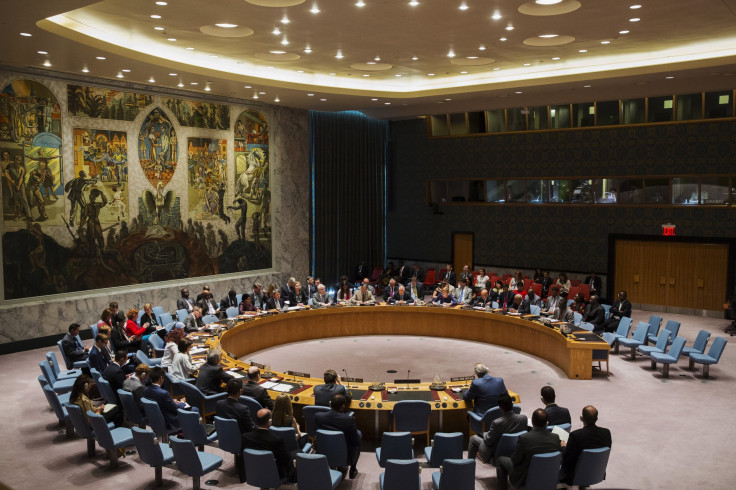Russia UN Vetoes On Syria, Ukraine Undermining United Nations Security Council, US Warns

If Russia continues to wield its veto in the United Nations Security Council to block the council's resolutions on Syria and Ukraine, it will undermine the legitimacy of the Security Council, leading powers like the United States to avoid it, the U.S. has warned, the Guardian reported Wednesday. Russia, along with the China, the U.S., France and the United Kingdom -- the four other permanent members of the U.N. Security Council -- has a special veto power that can stop resolutions from being passed.
“It’s a Darwinian universe here. If a particular body reveals itself to be dysfunctional, then people are going to go elsewhere,” Samantha Power, the permanent representative of the U.S. to the United Nations, told the Guardian. If Russia started to veto crucial resolutions beyond those related to Syria and Ukraine, she said, “it would certainly jeopardize the security council’s status and credibility and its function as a go-to international security arbiter.”
Kofi Annan, former secretary-general of the U.N., has said the same. “I firmly believe that the council should be reformed; it cannot continue as it is. The world has changed, and the U.N. should change and adapt," he told the Guardian. "If we don’t change the council, we risk a situation where the primacy of the council may be challenged by some of the new emerging countries."
Since 2011, Russia has vetoed Security Council resolutions on Syria four times: First in October 2011, then in February 2012, again in July of that year and most recently in May 2014. The resolution in May 2014 sought to refer Syria to the International Criminal Court, the July 2012 proposal would have threatened the possibility of sanctions on Syria if violence continued and the February 2012 proposal was a peace plan to stop violence in the country, at a time when the conflict was less than a year old.
In the past two years, Russia has also twice vetoed resolutions pertaining to Ukraine, most recently in July to block the creation of an international tribunal to investigate the crashing of Malaysia Airlines Flight MH17 in eastern Ukraine, which Western nations have said appeared to have been shot down by Russian-backed rebels, with a Russian anti-aircraft missile.
But China also vetoed the same four Security Council resolutions on Syria that Russia did, and the U.S. has vetoed numerous resolutions on the "the situation in the Middle East," particularly conflicts involving Israel and Palestine.
UN Security Council must be revamped or risk irrelevance, Kofi Annan warns http://t.co/wv8PM8vdSE
— The Guardian (@guardian) September 23, 2015The veto power of the Security Council's five permanent members has been debated and criticized, sparking calls for reform in the 15-member body -- 10 of whom hold rotating seats. France and the United Kingdom have suggested bringing new permanent members to the Security Council, and some countries in Africa have sought to gain two permanent seats. France has also proposed that in situations where mass atrocities are happening, veto power be suspended.
The ongoing four-year civil war in Syria, where at least 250,000 people have died, would be one of those cases. “Syria is a stain on the conscience of the Security Council," said British U.N. Ambassador Matthew Rycroft, according to the Guardian. "I think it is the biggest failure in recent years, and it undoubtedly has consequences for the standing of the Security Council and, indeed, the United Nations as a whole,” he said.
© Copyright IBTimes 2024. All rights reserved.






















